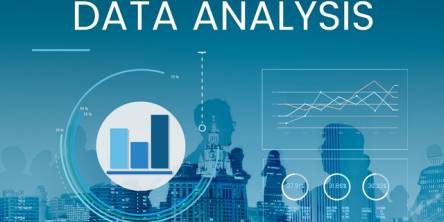Tips To Modernize Data Management in Modern Age

Data, in general, has become a rockstar in the business world. As companies continue their pursuit of efficiency, flexibility, better decision-making, and improved customer experiences, establishing robust data management has rendered them the need of the hour. Plus, given the continued evolution of technologies and the many solutions they provide, there is now a growing emphasis on modernizing data management. After all, how else should one keep up with the rapidly evolving security and app requirements and demands? And let us not forget that managing data safely and in a way compliant with a world of regulatory requirements needs painstaking stratification to source, cleanse, integrate, store, and prepare data for further use. I was wondering how you can do that too. We have got your back!
In the digital age, data is the lifeblood of businesses and organizations, fueling innovation, decision-making, and growth. However, the data management landscape constantly evolves, presenting exciting opportunities and complex challenges. Traditional data management approaches often struggle to keep pace with the demands of today's dynamic and data-rich environment. Organizations must embark on a modernization journey to thrive in this data-abundance era. In this blog, we will embark on a comprehensive exploration of the myriad ways to modernize data management. From harnessing the potential of cutting-edge technologies like AI and cloud computing to adopting agile data governance strategies, we will uncover the procedures and best practices that can empower you to unlock the full potential of your data assets while ensuring their security, accessibility, and compliance.
4 Handy Tips for Data Modernization
- Revamp data management architecture: Let us begin with the first step. Companies must start their data management modernization projects by analyzing the existing data management architecture. Identify the areas that need improvement or demonstrate the potential for improvement. Modern data management architectures usually involve distributed and scalable systems and are vital to enabling better resource utilization. They are also conducive to seamless data integration and data sharing.
- Build AI-driven data management solutions: For companies to remain competitive in the current market, it has become imperative for companies to glean the best possible insights from their data. This is where artificial intelligence (AI) and machine learning (ML) come in, which help automate and optimize data management tasks. AI, for example, can help with data integration, data cleansing, data quality assessment, and even data governance. The insights thus achieved can drive better decision-making and innovation and facilitate the discovery of new opportunities.
- Map data assets: The next step in this journey is understanding and documenting all data assets across the organization. This involves identifying sources, types, formats, and data ownership. Such a comprehensive data asset map empowers companies to have a clear view of their data landscape and, thus, ensures that they can make informed decisions about data utilization and governance.
- Data democratization: Companies must empower stakeholders with easy access to data and analytical tools, i.e., democratize their data. This involves eliminating data silos and providing self-service capabilities. Companies must also empower non-technical users to explore and analyze data without needing assistance from IT or data science teams.
Data modernization best practices, including the ones listed above, help organizations successfully modernize their data management practices and, consequently, tap into the full potential of their data assets to drive innovation and growth. But one must not forget that data modernization isn't just about implementing technologies; it is as much about fostering a data-driven culture within the organization. So, do not forget to encourage employees to base their decisions on data and insights. It would also be a wise idea to identify and reward data-driven behaviors. Such a cultural shift in the organization will help foster better collaboration and utilization of data across all levels of the organization.
Similar Articles
The financial technology sector, commonly known as fintech, is experiencing profound changes due to the rise of data science. Integrating extensive data methodologies enhances existing services and unravels new opportunities that were previously unimaginabl
The gas detection industry has been subjected to various issues from the beginning. Whether it's a false alarm, limited sensitivity in detecting gases, or detection of hazardous gases in a remote area, the array of problems goes on and on.
Discover how Tinnox LED Video Walls revolutionize events with vibrant visuals, seamless integration, and unmatched adaptability for unforgettable experiences.
Electrical safety goes beyond mere obedience to regulations; it is a vital defense that shields individuals from fatal risks while at work. These invisible dangers are hunted down by arc flash labels which act as sentinels, warning of imminent disaster that can be avoided in both industrial and commercial settings through proper precautions.
Most of us love sharing our personal photos and creative work on multiple social media platforms for various purposes. However, it’s not safe at all. Once you share anything on social media and make it public, anyone can exploit it for personal gain.
A supply-side platform (SSP) is helpful for digital publishers because it changes the way in which they can buy and sell ads. It uses real-time bidding (RTB) and data analysis to make sure more ads can be placed, get the best prices for ads, and attract more advertisers
In today's competitive business environment, companies are continually seeking ways to enhance efficiency, improve decision-making, and streamline operations. Enterprise Resource Planning (ERP) software has emerged as a vital solution, integrating various business processes into a cohesive system
Ultrasonic cleaning is a powerful, non-invasive method for removing contaminants from surfaces. Using high-frequency sound waves, ultrasonic cleaners create microscopic bubbles that implode upon contact with dirt, oils, or grime, effectively lifting them off.
When we think about efficient transportation within large buildings or crowded areas, we often imagine escalators or elevators. However, there’s another key player in the world of horizontal transportation: moving walkways.









